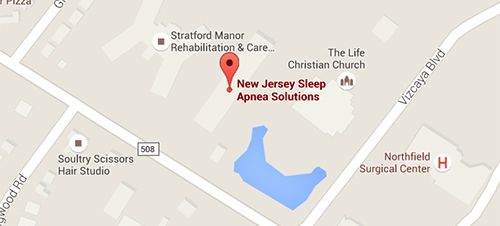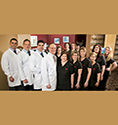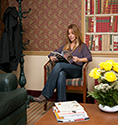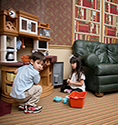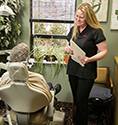Healthy Sleeping Habits
Submitted by New Jersey Snoring Solutions on Mon 09/28/2015 - 09:00

Getting adequate sleep during the night can be difficult whether or not you suffer from sleep apnea. If you find it hard to fall — or stay — asleep at night, Dr. Ivan F. Stein and his team of sleep experts at New Jersey Sleep Apnea Solutions are here to help with a list of habits that will provide you more — and better quality — shut-eye.
Watch Your Caffeine and Alcohol Intake
Stimulants such as coffee, tea, chocolate, cola and even alcohol (which has stimulant effects) can keep you awake even if you consume them hours before bedtime. To avoid staring at your ceiling in wide-eyed stupor during the early morning hours, avoid eating or drinking anything with caffeine at least four hours before bedtime.
Stick to a Sleep Schedule
Our “sleep drive,” which is our body’s desire to sleep at certain times, is homeostatic. This means that the body regulates it internally, where it is set based on the times that we normally go to sleep and are awake. Whether a person characterizes themselves as an early riser or a night owl, their sleep patterns can be altered by changing, and sticking to, a new sleep schedule — even on weekends.
Turn of all Electronics an Hour Before Bed
The bright light of a smartphone, tablet, laptop or TV mimics sunlight and falsely alerts the brain that it’s time to wake up. On top of this, these digital devices cause our brain to go into sensory overload, making it more difficult to enter a relaxed state where we are ready to sleep. To avoid this pattern, try to keep the TV off and the phone and tablet out of arm’s reach so that you won’t be tempted to pick them up while lying in bed. For maximum sleep- health benefits, try keeping the last hour before bed “digital-free.”
Resist Watching the Clock
Whether you’re having a hard time falling asleep or you’re finding it difficult staying asleep during the night, avoid the habit of looking at the clock as you’re trying to nod off. This habit creates stress, as your brain is usually working to calculate how few hours of sleep you will likely get that night. Stress, in turn, elevates stress hormones, which have an energizing effect on the body. To avoid this, turn your clock’s face away from you.
Skip the Snooze Cycle
Many people like to set their alarm earlier than necessary to experience a longer waking cycle spread out by bouts of hitting the “Snooze” button. They may think they are doing their body good, but instead they are most likely disrupting the REM-cycle, the period where the deepest and highest-quality sleep occurs. Skip a few “Snooze” sessions by setting your alarm closer to a time when you need to get out of bed.
If you have frequent bouts of waking up in the middle of the night — and especially if you wake up suddenly because of difficulty breathing — you may be experiencing symptoms of sleep apnea. For more information, contact Dr. Ivan Stein at New Jersey Sleep Apnea Solutions by calling (855) WHY-SNORE or (855) 949-7667.

